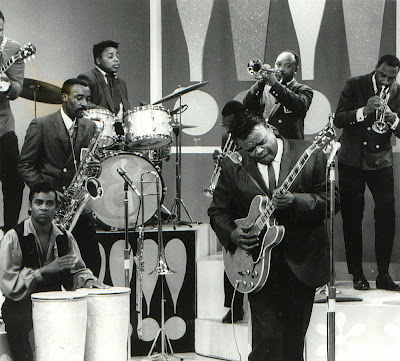
The other day, while reading Pitchfork, I came across
their review of a new Afghan Whigs retrospective. I found myself fascinated by the review – it had been years since I had even thought of the Whigs or Greg Dulli, and it brought back a lot of memories.
I started working in the record business full time in 1993, at
Elektra Records. It was a great label then – eclectic in taste, spanning the gamut with artists such as Metallica, the Breeders, 10,000 Maniacs (who I couldn’t stand then, and still can’t), Tracy Chapman, Bjork, Brand Nubian, Motley Crue and more. It was absolutely an elitist label, filled with dedicated people who really believed that they were doing better work than their competitors at the other major labels. I loved being there utterly and completely.
1993 was the high water mark of the post-Nirvana era. It still seemed possible that any sort of weird, left-of-center band had a real chance of breaking it big. (Bands like Candlebox and Better Than Ezra were about to arrive, but we didn’t know that yet.) In the fall of that year, we were enjoying lots of success with the Breeders “Cannonball,” 10,000 Maniacs' cover of “Because The Night,” and the first Bjork album,
Debut. In that environment of heady possibility, Elektra Records was very, very excited about the arrival the Afghan Whigs first album for the label,
Gentlemen.
The Afghan Whigs were signed to the label by a true character,
Terry Tolkin (MySpace link discovered today). Terry, to my 23-year-old self, was cool personified. He had an impeccable alt/punk resume; it seemed like he knew everyone who was anyone and it was even said that he introduced Thurston Moore to Kim Gordon. He was really great to me – we would go out to lunch on occasion and talk about our mutual love of Neil Young, 70’s British punk and the Dead (and he told me about all the closet Dead fans in the New York alt/punk scene). I was absolutely committed to doing A&R, and Terry gave me lots of advice – the main piece of which was that there was no one path into doing A&R and that I had to scam it myself. Terry had also recently signed Stereolab and Luna to the label, and when we would talk, he was absolutely committed that all of those bands blow up. “I want every band I sign to be the biggest band in the world,” he would say. He really believed it was possible, and his enthusiasm, along with my willingness to suspend my disbelief in his presence made me believe it was possible too.
There were huge expectations for
Gentlemen, and the hype in the building was tremendous. We were talking about the album as though it was an instant classic. I liked the album upon first listen, but I remember wondering if it was a hit album the way I thought the Breeders’ Last Splash was the first time I heard it. No matter. I listened to the album at least 5 to 7 times a week during my commute from Jersey to the city (I was still living at home) and began to get into the album, especially “My Curse,” a duet that lead singer Greg Dulli sang with Marcy Mays of Scrawl. I remember the press reaction being incredibly positive, and bordering on ecstatic on the subject of their live show.
We worked the hell out of the album, but it never caught fire at radio. In retrospect, it wasn’t particularly surprising – the songs just weren’t that hooky. They were incredibly dense and probably a little too obtuse for mainstream consumption. We hoped that the band’s live show would take them to the next level, but it didn’t quite pan out.
I remember seeing the band at the Academy in the spring of 1994. I believe it was right after Kurt Cobain’s suicide. The show was great, and the fact that the band was obviously soul influenced was huge for me. By then, I could speak fluently about Otis Redding (not a big topic of conversation amongst my alt-rock peers), and Dulli’s love of soul made me root for the band even harder – and made me turn a blind eye to the band’s obvious flaws, the main flaw being that their songs were just not good enough to take them beyond a small to medium sized cult following.
And it was soon after that Academy show that things began to fall apart – at Elektra Records and possibly (I wasn’t an insider, but I heard lots of rumors) with the
Afghan Whigs. Bob Krasnow, the great and imperious chairman of Elektra, was forced out that summer, and everything that had been special about Elektra was gone in about two years. Terry left the label in or around 1996. I never heard from him again, but I did hear that he left the business entirely to deal with some personal issues. I hope he’s well – he was a great guy.
As far as the Afghan Whigs go, they put out one more album on Elektra,
Black Love, that I don’t remember at all and then went over to Columbia and put out
1965, which did nothing for me. I look back upon them fondly – not nostalgically, but as a band that had their ambition on their sleeve, that wanted to do something that no indie/alt band was doing; the fusion of the fire and passion of soul to the indie rock. It’s possible that it was an utter failure, but it was an incredibly noble one.
Buy The Afghan Whigs At AmazonDownload:
"Papa Was A Rolling Stone" 2/24/99, Baltimore, MD
Download:
"My Curse" 2/24/99, Baltimore, MD
Download:
"Debonair" 2/24/99, Baltimore, MD
Download:
"Rip This Joint" Spring 1999, New York, NY
Download:
"What Jail Is Like" 2/24/99, Baltimore, MD
 For this week’s installment of “Bootleg Friday,” I’m breaking out the heavy artillery. It’s Al Green from the WNET-TV special “Soul.” It’s a monstrous performance, taped in early 1973, prior to the July release of his best album, Call Me. Green’s on-stage mastery is breathtaking, as he explodes the versions of his hits and transforms them into unstoppable and transcendent locomotives. Notice the incredible intro to “Tired Of Being Alone,” the fiery and expanded version of “Love And Happiness,” and a genius cover of the Carpenters “We’ve Only Just Begun” that segues straight into a titanic “Let’s Stay Together.” (Only Al Green could imagine the Carpenters in the realm of soul.)
For this week’s installment of “Bootleg Friday,” I’m breaking out the heavy artillery. It’s Al Green from the WNET-TV special “Soul.” It’s a monstrous performance, taped in early 1973, prior to the July release of his best album, Call Me. Green’s on-stage mastery is breathtaking, as he explodes the versions of his hits and transforms them into unstoppable and transcendent locomotives. Notice the incredible intro to “Tired Of Being Alone,” the fiery and expanded version of “Love And Happiness,” and a genius cover of the Carpenters “We’ve Only Just Begun” that segues straight into a titanic “Let’s Stay Together.” (Only Al Green could imagine the Carpenters in the realm of soul.)















